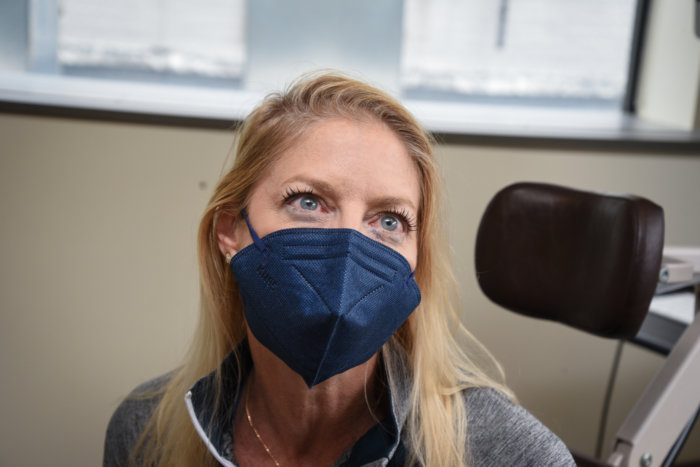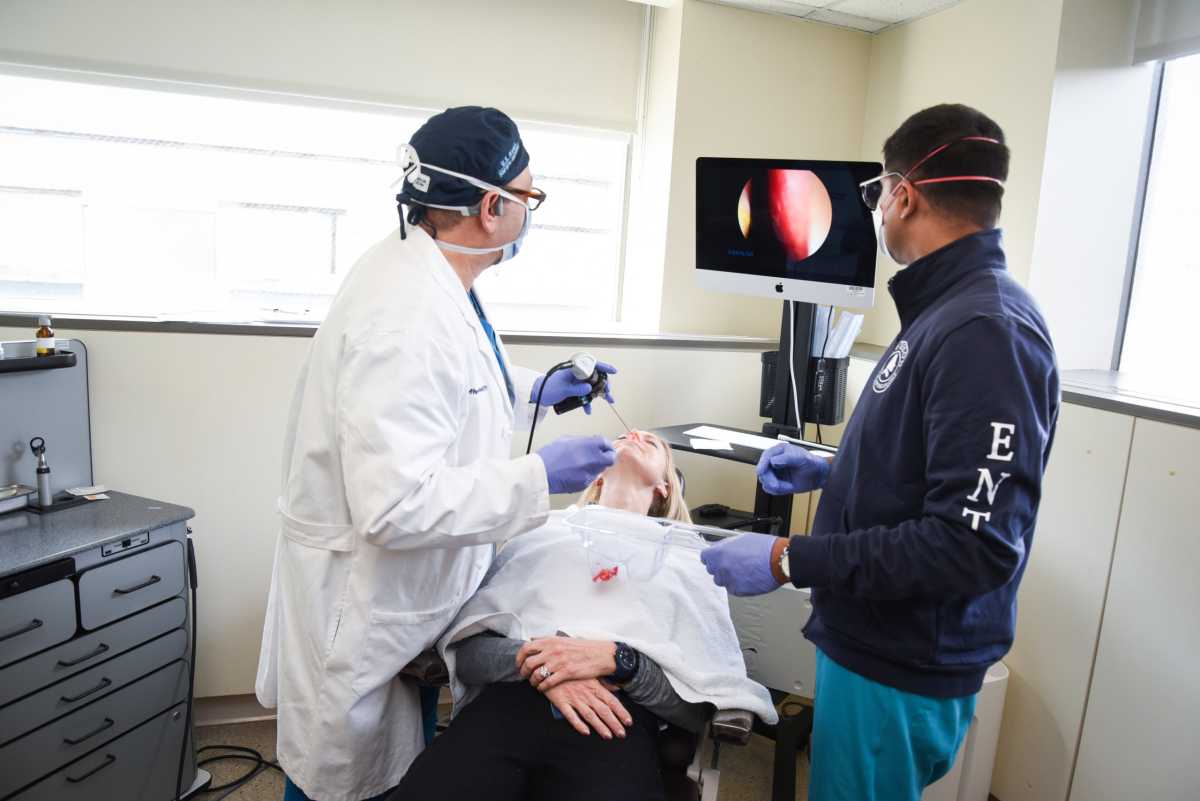Nancy Damato used to be in tune with her sense of smell.
At wine tastings, she would be able to catch whiffs of blackberry and tobacco, and she did research on which odors would promote sleep or elicit certain moods.
“I am such a big scent person,” said Damato, a 54-year-old marketing consultant. “I have so many perfumes that I love. I have essential oils, and I practice yoga, and I love using a diffuser.”
Damato’s penchant for aromas ended suddenly in February 2021 when she contracted the coronavirus and lost her senses of smell and taste. Even more frightening, the senses did not return in two weeks, or even two months.
“It changes your whole world, like in a minute,” she told Metro. “It’s wild. It’s really upsetting.”
Every month, Damato makes the all-day train trip from her home in Cold Spring, a town in New York’s Hudson Valley, to Philadelphia in the hopes that an experimental treatment at Jefferson University Hospital will help her regain her senses.
Perhaps surprisingly, given that the pandemic in the United States is at the two-year mark, there is no medication or bonafide procedure for people who have lost their smell or taste.
Between 710,000 and 1.6 million people are dealing with chronic smell loss due to COVID-19, according to a report late last year in the Journal of the American Medical Association.
“Preliminarily, our data is looking promising, and, up to this point, nothing’s really looked promising,” said Jefferson ear, nose and throat Dr. David Rosen, who is spearheading the new treatment’s trials.
“So that’s why it’s been kind of exciting for everybody, that there’s actually something that may work,” he added.
Rosen’s team draws blood from the patient, discards the red blood cells and attempts to separate the platelets from the leftover plasma. The platelets are soaked into a small dissolvable sponge which is put in each nostril.
Damato explained that her nostrils are numbed during the procedure, but she still feels the sponges. The whole exchange takes only 15 to 20 minutes, she added.
Platelet treatments are designed to be regenerative, Rosen said, and have been used to heal injured muscles and generate hair growth.
Four of the eight people who participated in the clinical trial’s first phase saw significant improvements after at least three treatments.
Rosen, in speaking about the treatment, is cautious. There is still a long way to go, and the initial run did not account for the placebo effect or the possibility that patients are healing over time.
The next step is a randomized, placebo-controlled second trial with 30 patients. Rosen hopes the process will get underway within the next couple of months.
He began working on a platelet-rich treatment for smell loss about a year before the pandemic began after seeing a Hungarian study with encouraging results.
People can also lose their ability to smell by being exposed to toxic odors, which can damage the lining of the nose, or a head injury if the trauma cuts off certain nerves, Rosen said. Other viruses can also result in chronic smell loss.

COVID-19 is unique in that some patients lose their senses at the onset of the illness, he added. With most other viruses, smell loss occurs following respiratory symptoms.
Damato, who has undergone five platelet treatments at Jefferson since October, says she has seen an improvement. She can sometimes detect scents in the air, as opposed to just when they are close to her nostrils.
“I am getting more flavors,” she said. “I’m getting some taste, which I didn’t have for over a year.”
In addition to the procedures, Damato conducts daily smell training using rose, clove, lemon and eucalyptus oils. She takes a sniff of each and tries to remember what the scent smells like in an attempt to retrain her brain.
Trying to navigate in the world without her senses has been depressing, she said. Family dinners can be awkward, and, in the beginning, she did not even feel comfortable eating meals with her husband.
Now, Damato can sense sweet flavors such as honey, and she’s beginning to get a feel for coffee and wine again, too.
“It’s not fully back, but I’m on my way,” she said. “I feel like I’ve made some big jumps forward. And also, it’s given me a lot of hope.”




























